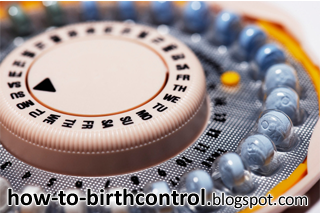17 Eylül 2011 Cumartesi
About Birth Control Pills
Combined oral contraceptives (COC) and
Progestin-only oral contraceptive (POC)
Description
COCs are pills contain the hormones estrogen and progestin. POCs are pills that contain only the hormone progestin. Both act to changes in the uterus, making it inhospitable for implantation to produce an egg and difficult to move freely for the sperm in the female reproductive organs. Neither pill prevents the spread of STDs / STIs.
Effectiveness
An important feature of the pill is that it is almost 100% effective if used properly. Actual effectiveness is actually about 92-95% by occasional abuse (ie, forgetting to take it).
Directions
The pill will be administered either on a 28-day or 21-day cycle. The 28-day pill for every day of the period is specified, of which 7 is really just "filler" pills (placebos) contains no hormones. The purpose of this placebo is to make sure the woman is to maintain the correct timing of doses. In the 21-day pack, there are 7 days per month that you are not allowed on a pill and the woman does not forget to include the schedule for the 7-day break. If you want to use the pill as an effective method of contraception, you must make it a part of your daily routine. Please see your doctor to learn more about the pill and if it's right for you.
Benefits
There are many pleasant side effects of the pill. Menstruation is usually lighter, shorter and less painful. For most women, the menstrual calendar is very predictable with menstruation occurs when there is a decline in hormones. It is even possible, the day of your period begins with the stop before the end of a packet of pills, or adding to change until the end. Please consult your doctor before you begin the day your period is trying to change. Studies have shown that, those who take the pill at a lower risk of developing anemia, pelvic inflammatory disease and cancer of the uterus and ovaries. In addition, they can help with problems such as cysts in the breasts or ovaries, acne, irregular bleeding and endometriosis.
Disadvantages
Consult your doctor if you experience any negative side effects while taking the pill. It is important to note that all known side effects caused by not taking the pill.
Short-term effects
Some women find that they sometimes headaches, mood swings, breast tenderness experience, fatigue and breakthrough bleeding during the first months of the year with the pill. Spotting or breakthrough bleeding due to a lack of estrogen in the first half of the cycle and a lack of progesterone in the second half. Bleeding is usually not more without the need for treatment. But if the bleeding does continue, your doctor will probably recommend that you switch to another brand. If you were on the pill for several years and the experience of spotting then you see your doctor immediately to determine the cause. These effects are usually dissipate after two to three months with the pill.
Long-term effects
The pill can cause a variety of long-term complications. It is important to recognize, with a doctor if you are in danger.
Women who have a history of cardiovascular disease should contact their physician about whether they are in great danger issue, because the blood vessel and blood clotting disorders are more common in users of the pill. In particular, the women taking the pill at increased risk for blood clots in the leg or pelvis, pulmonary embolism, heart attack or stroke.
Anyone who suffers from migraines should also question the use of the pill. If the migraine worse while taking the pill, then the application should be terminated.
The addition of hormones in the body leads to certain tumors grow faster. Therefore, anyone who does not take a known or suspected cancer of the pill. It is important to note that the pill decreases the risk of cancer of the ovaries and the uterus in half. The effects of the pill on skin cancer and cancer of the cervix are currently unclear.
The addition of extra hormones also cause breast enlargement. Those women with benign breast disease (lumpy or tender breasts) may see an improvement in their condition, while others may experience no significant changes. The pill also affects the breasts, by reducing the amount of milk produced, the quality of breast milk is not significantly affected.
Women who want to take the Pill while breast-feeding should consult their doctor.
Women should have had, liver damage can not take the pill. The pill causes a small increase in rare tumors of the liver. For women with diabetes may use insulin requirements to change the pill and it can also use the results of the glucose-tolerance test.
The pill has been linked to causing depression, irritability and / or tiredness in some women combined. This problem is usually not until the discontinued use of the pill be accepted if the woman begins to feel better gradually. The pill may adversely affect one of the drugs, which will take you well may be, you should contact a doctor on the subject. The pill increases the influence of some drugs (eg alcohol) and a reduction of the effects of other drugs (such as certain painkillers).
The pill can also cause some unwanted physical changes such as water retention, which in turn can cause bloating, irritability, leg cramps and nausea. If you suspect that this is a problem, you should consult with your doctor about changing the brand of pill use to ask. Some women have dark circles around the eyes due to increased estrogen levels. A weaker brand of pill are usually resolve these problems. Some women experience weight gain and increased appetite that can be controlled by switching to a pill with a weaker progesterone.
Kaydol:
Kayıt Yorumları (Atom)



0 yorum:
Yorum Gönder